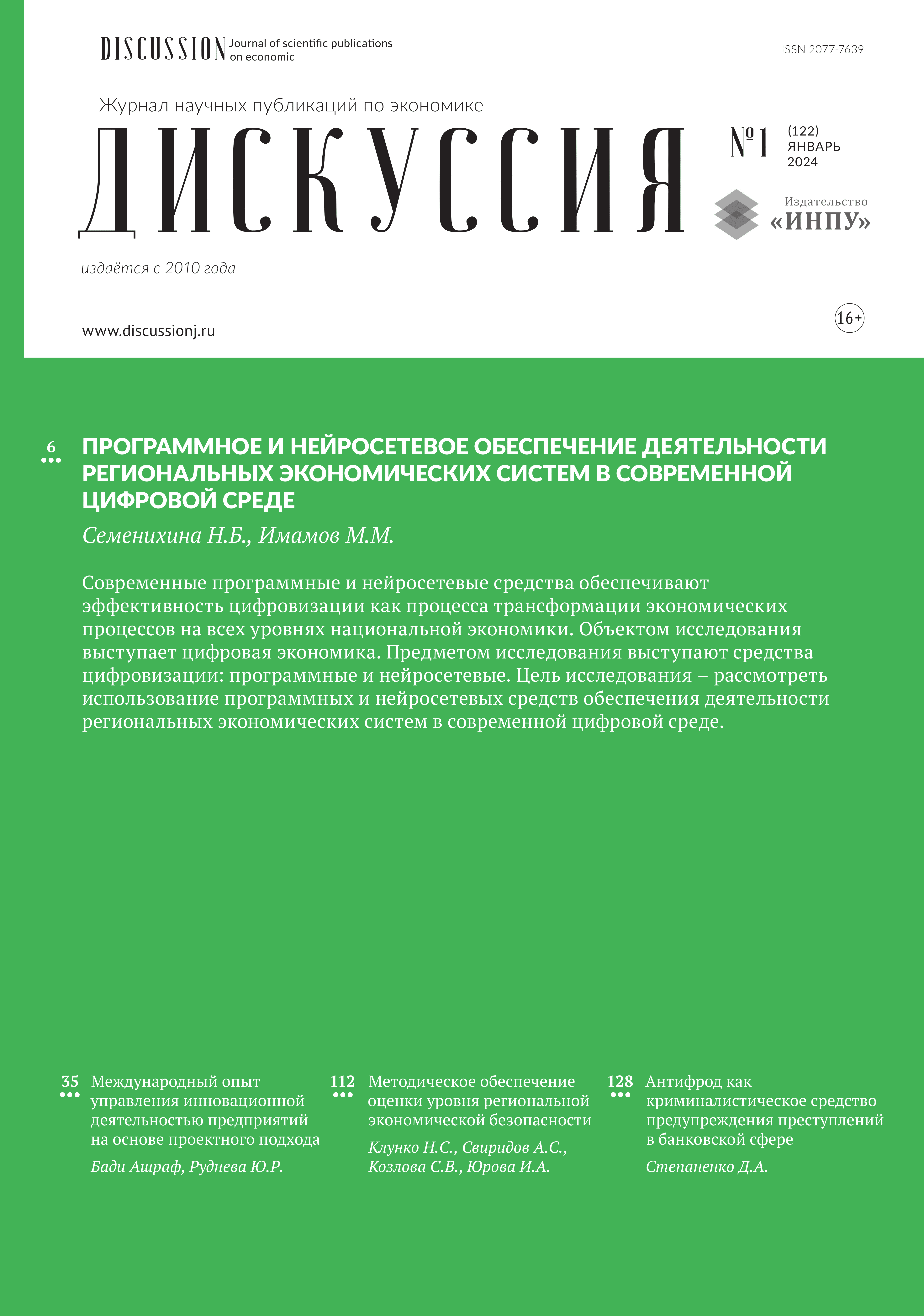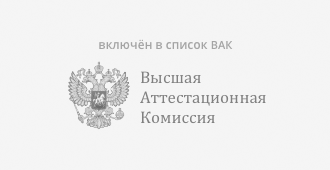Stepanenko D.A. Anti-fraud as a forensic means for prevention of crimes in the banking sector
Keywords:
banks, finance, information security, phishing, behavioral reactions, fraud monitoringAbstract
In the modern digital business environment, methods and tools for illicit enrichment and deception are constantly evolving, which requires the development of flexible and adaptive mechanisms for detecting and preventing abuse and fraud in the financial and banking sectors. The object of the study is the banking sector, as a sector of the national economy and a global participant in the financial system. The subject of the study is a forensic means of preventing crimes in the banking sector. The purpose of the study is to consider the content of antifraud as a modern forensic means of preventing crimes in the banking sector. The article argues that banking institutions tend to hide information about fraud to avoid the risk of loss of reputation, preferring to disclose cases either at the request of the judicial system or when there is significant damage affecting customers. It is easier for law enforcement agencies to investigate simple cases of bank fraud, for example, when a client takes out a loan with the deliberate intention of not repaying it; in such situations, the criminological aspects of the crimes are well studied, fraudsters rarely manage to cover their tracks and often manage to identify the violators, even in collusion with bank employees. At the same time, government regulation consists primarily of providing legal mechanisms of responsibility, although there is an obvious need to use means of crime prevention, because punishment does not compensate for the loss of public welfare, therefore automated real-time fraud detection tools, such as the Antifraud system, are urgently needed to detect fraud in the banking sector, since they allow you to track and prevent the commission of a crime in real time using many behavioral and technical signals (behavioral biometrics and fingerprints). The article presents types of fraud, types and algorithms of the anti-fraud system, which make it possible to prevent the commission of a crime and prevent the loss of public well-being and economic damage.
Downloads
Published
How to Cite
Issue
Section
Categories
License
Copyright (c) 2024 admin admin

This work is licensed under a Creative Commons Attribution-NonCommercial-NoDerivatives 4.0 International License.
Авторы, публикующие произведения в журнале «Дискуссия», соглашаются со следующими условиями:
- Авторы сохраняют за собой авторское право и предоставляют журналу право первой публикации произведения, одновременно лицензированной в соответствии с лицензией Creative Commons Attribution, позволяющей другим лицам пользоваться произведением с подтверждением авторства и первоначальной публикации в журнале «Дискуссия».
- Авторы вправе заключать с иными лицами лицензионные договоры на условиях простой (неисключительной) лицензии на использование опубликованного в журнале «Дискуссия» произведения (например, размещение его в базах данных университетов, публикация в книге), со ссылкой на его оригинальную публикацию в этом журнале.
- Автор гарантирует, что является правообладателем всех материалов, предоставляемых в редакцию, и что исключительные права на данные материалы не переданы или не предоставлены другим лицам.
- Авторам разрешено и рекомендуется размещать свое произведение в Интернете до и во время процесса подачи, поскольку это может привести к продуктивному обмену, а также к более раннему и более широкому цитированию опубликованных работ.
С момента загрузки произведения и сопроводительных материалов через раздел "Отправка материалов", автор полностью и безоговорочно принимает (акцептует) публичную оферту о заключении авторского соглашения об опубликовании произведения. В соотвтетствии с этим соглашением автор предоставляет издателю на безвозмездной основе неисключительную лицензию на использование созданного автором произведения.
С момента получения произведения и прилагаемых к нему материалов журнал "Дискуссия" вправе использовать полученные произведения без ограничений по своему усмотрению и в пределах всего срока действия исключительных прав, но с обязательным указанием имени автора (авторов) произведения, в том числе публиковать произведения (полностью или в сокращении) на территории всего мира, переводить на другие языки, направлять в репозитории научной информации, размещать в сети Интернет и использовать другими законными способами.









